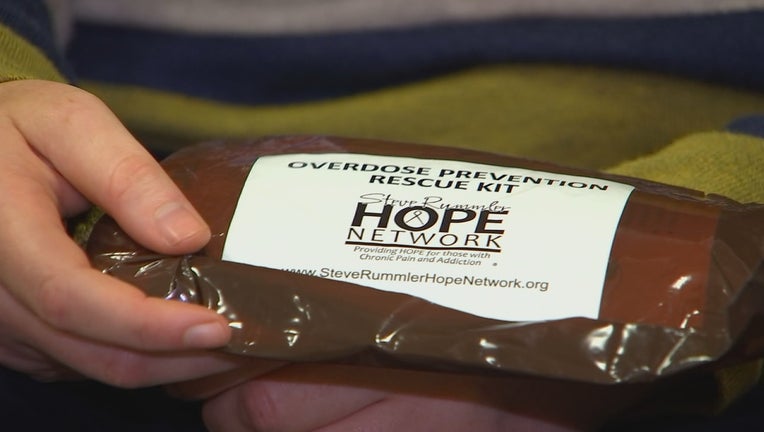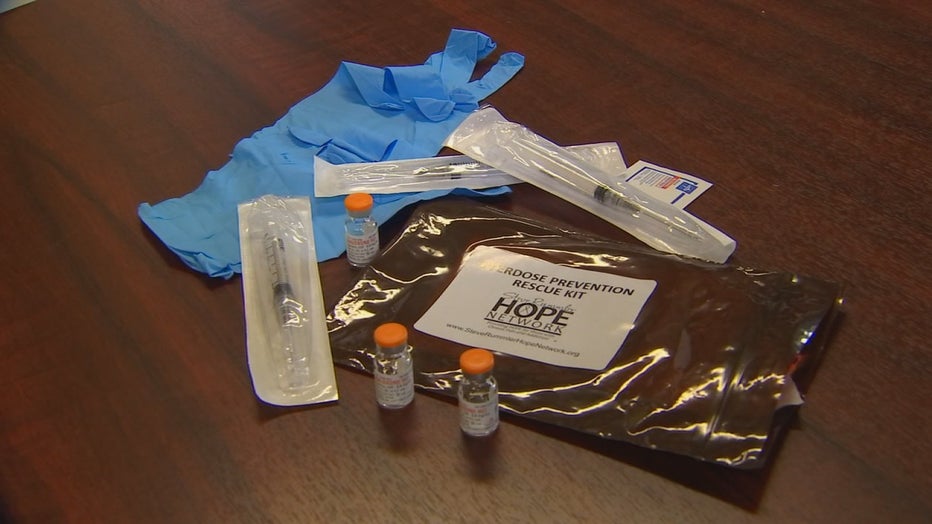University of Minnesota medical students get training to use overdose rescue kits

A new training program at the University of Minnesota's Medical School is believed to be the first in the country to arm students with the medicine needed to save someone suffering an opioid overdose.
The recent training is also immediately putting hundreds of additional naloxone kits into the community.

University of Minnesota medical students get training to use overdose rescue kits
A new training program at the University of Minnesota's Medical School is believed to be the first in the country to arm students with the medicine needed to save someone suffering an opioid overdose.
The kits are being supplied through the Steve Rummler Hope Network and are now added to a course called "Becoming A Doctor." In this case, third and fourth-year medical students don't have to wait to become doctors to put this life-saving tool to use.
Ally Fuher and Zineb Alfath are two of more than 220 medical students recently trained to use opioid overdose prevention rescue kits.
"Being part of that generation, and knowing people that have struggled with opioids," explained Fuher. "And seeing our med school is responding to that and being aggressive in that response. That’s awesome and makes me really happy to go here."
"We know we got into this mess and we need to train ourselves out of it," said Dr. Andrew Olson.
Dr. Andrew Olson teaches the course, which has included an emphasis on how to talk with patients about opioids, carefully prescribing them, and the overall epidemic. This semester, a training session on how to administer naloxone was added. Now, every student taking the course is prepared to save a life, should they encounter someone suffering an overdose.

"It’s a first aid kit for the modern era," said Dr. Olson. "Taking a step back, that’s sad to think about, but we need to equip our health professionals to be acting in the community and helping."
"It feels like a huge responsibility, but also really empowering that just after a 90-minute training you can walk out the door and use it on someone you were to see on the street," said Alfath.
As we've seen repeatedly, naloxone saves lives. But, the Steve Rummler Hope Network points out it's nearly impossible to track exactly how many. Still, having more of these kits in the hands of people willing to help is life-changing.
Adding the privately-donated kits to the curriculum is proving to be so successful there's already talk of expanding the training to first-year medical students in the future.

